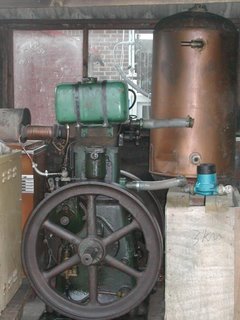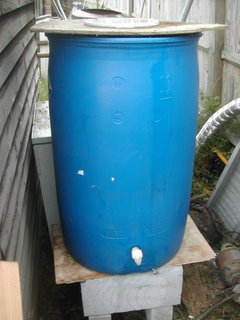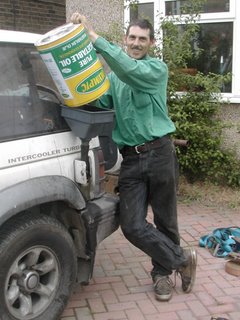
Well they said it was "Just Three Steps to Heaven", and here is the third installment in my own personal journey into using waste vegetable oil for powering my home in Suburban Surrey.
Regular readers will remember how I spent the tail end of last year minimising my fuel bills. It must be the Scottish blood in me that I inherited from my mum. My electricity savings are about 20% and my gas consumption is down by 50% since 2000, when I moved to this house.
To be successful with renewable fuels you have to work at your religion, be it, either sawing or chopping firewood, or collecting and filtering waste vegetable oil, these ideas only work out if we work at them.
The engine installation is far from complete, and it lacks the final plumbing system that will effectively tie it into the hot water and heating systems of the house. Today I made a start on providing the engine with its own hot water storage cylinder see photo- which is also shared with my solar panel. When either the panel heats up, or the engine is started and is up to running temperature, the circulation pump switches on and starts to heat up my domestic hot water. It has the added bonus that the solar panel can be used to pre-heat the engine block, making it easier to start directly on waste vegetable oil.
Over the next few months I will complete the installation in readiness for the winter season. Anyone in the south east of England wanting to find out more about this system can contact me at ken.boak@gmail.com

